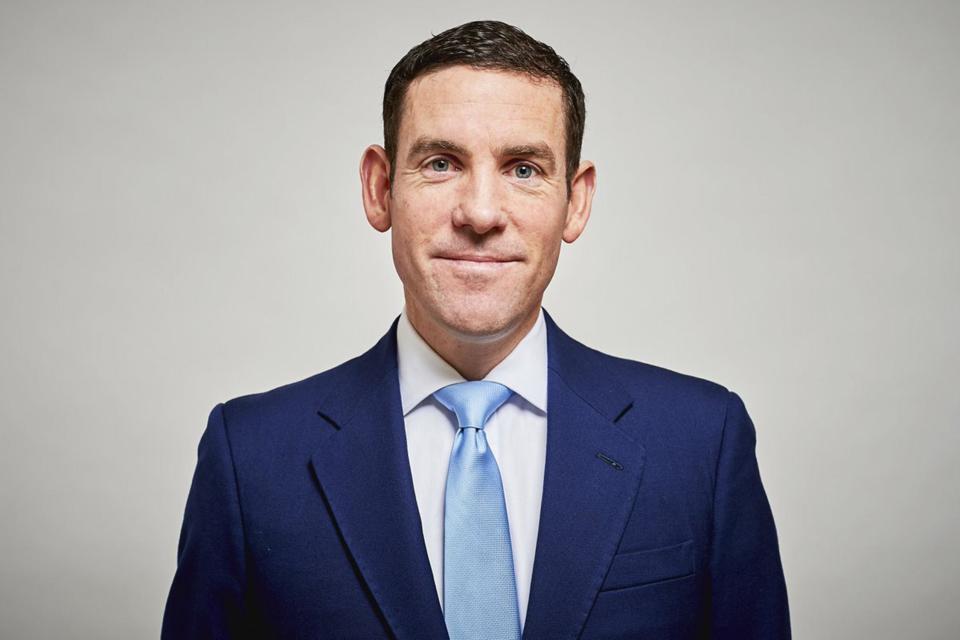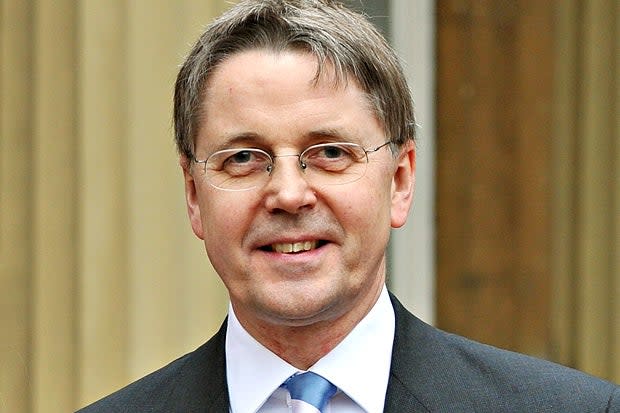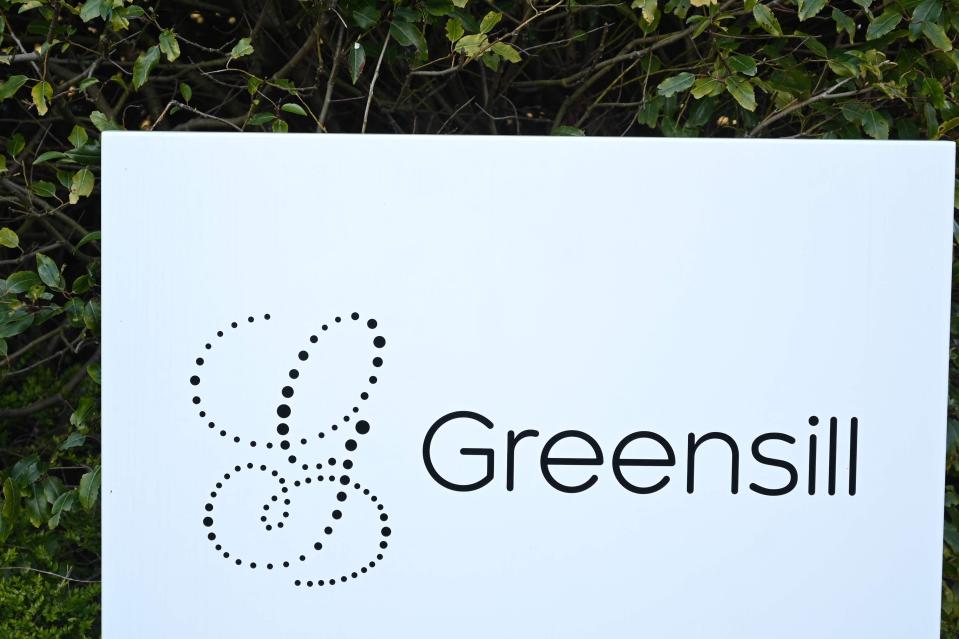How did Lex Greensill seduce the world?

Greensill is the type of salesman who, says a former colleague, “can sell sand to the Bedouin”.
(Handout)What wouldn’t Lex Greensill give today to be burying his hands in the ochre soil of his family’s farm in Queensland and yanking sweet potatoes out of the ground? He is about as far away from his beloved Aussie roots as it’s possible to get: appearing before MPs on the Treasury Select Committee in an airless room in Westminster.
The U.K.’s Financial Conduct Authority is also investigating his firm Greensill Capital. But who is this man who managed to inveigle himself into the highest echelons of the British establishment; working his charm and causing destruction on a massive scale? Greensill seduced former prime minister David Cameron, Credit Suisse, Sanjeev Gupta, boss of one of the world’s largest steel conglomerates, and Lord Heywood, the late Cabinet secretary. He and his firm, Greensill Capital, worked at the highest level of government and business until it collapsed in March. It owes £2.7billion to creditors and its collapse threatens 50,000 jobs worldwide. Most vulnerable is Gupta’s GFG Alliance, which relied on Greensill financing. Some 5,000 jobs in Britain’s steel industry are at risk.
Greensill is the type of salesman who, says a former colleague, “can sell sand to the Bedouin”. He had a flash name but cultivated a down-to-earth life, toiling away in the fields and then in finance for 20 years. Yet he did have a weakness for some very expensive toys — his firm had four private jets. Until recently, his charm and silky sales skills made him a success story, he was honoured by the Queen for services to the economy.
The Commons committee is investigating Greensill Capital’s bankruptcy. When the hearing begins at 4pm, it will be the first time the 44-year-old will have spoken publicly about his firm’s collapse that was triggered by the decision by its key backer Credit Suisse to withdraw $10billion in financial support when the company’s main insurer refused to renew its cover.
Greensill will appear in front of MPs today wearing his trademark navy blue suit and tie, offset by casual Aussie stockman boots made by R M Williams and accessorised by the odd “what, me, maaaate?” boyish smile. The “small town Aussie boy made good” look he has cultivated over the years has served him well, taking him from farming to the City of London, a desk at Downing Street and the Word Economic Forum in Davos. There are reports that he earned his financial stripes by making bold investments. Others have said he was equally bold when it came to racking up expenses. After he was stranded in Copenhagen after a cancelled flight in 2010, it is reported that he submitted an expenses claim for £4,000 worth of new clothes, which the bank rejected.
His Cheshire home, where he lives with his wife Vicky, a doctor, and their two sons, has eight bedrooms and a cinema. Then there is his £3million five-bedroom Australian holiday house — a beach house with tropical gardens, a heated pool, pizza oven and barbecue. The Glass House, as it is called, has three floors, glass lifts and a view over the Great Barrier Reef.
Greensill was born in 1976, the son of farmers. Even from a young age at Bundaberg’s Kepnock state school in Queensland, Greensill stood out as bookish and “career-orientated”, a former classmate told the Australian Financial Review. “He wanted to be a hotshot lawyer.” He went on to study law but, as he tells it, left after a harvest that was so bad his parents could no longer afford the fees. Undeterred, he continued studying by correspondence, selling crops by the roadside to make ends meet.
The family farm was often in debt because it had to wait for up to two years for payment for harvests. While working at the Fruit and Vegetable Growers’ Association in Australia, Greensill drew up a payment code that aimed to speed up the time it took buyers to pay farmers for crops. That was the start of a career in supply-chain finance — the business of accelerating payments usually from big companies to smaller suppliers.

He began to earn his stripes in the sector in Sydney around 2000, before moving to London. Here he attended business school and eventually got a job at Morgan Stanley, where he set up its supply-chain finance business. He then ran a similar operation at Wall Street’s Citibank before deciding to go it alone.
He founded Greensill in 2011 with seed finance from friends and close family. He put together what looked like a quick and easy supply-chain finance system that could work in both the private sector and government. He would package up debts that a company was owed into short-term bonds, which he could profitably sell to investors, and use proceeds to pay suppliers, minus a commission.
His big break came at Morgan Stanley when he met civil servant Heywood, who was on secondment to the bank, and would later go on to become Cabinet secretary. Heywood was impressed and, when he became chief mandarin at Number 10 under Cameron, he pressed for Greensill to revolutionise Whitehall’s creaky payments system. Cameron agreed. So, aged just 34, Greensill was given a desk in the Cabinet Office, a .gov.uk email address and business cards.

Greensill held talks with all major Whitehall departments and leveraged his relationship with Heywood and Cameron to press for a new payments scheme in the NHS. Under the £800million programme, a bank would quickly reimburse pharmacies for the cost of providing prescription drugs to the NHS. At the time, it could take the health service weeks to repay pharmacies. Senior mandarins pushed back. Why, they wondered, could not ministers instead simply get the NHS to pay pharmacies faster? After all, they ran the health service. But Greensill’s great salesmanship prevailed. For the first five years the scheme was run by Citigroup. Then it was awarded to Greensill Capital. From July 2018 until its collapse, Greensill provided £1.2billion in loans to pharmacies, taking a fee for every loan. By the following year, when Japanese investment giant Softbank had ploughed more than $1.5billion into the firm, the company had offices around the world and was nudging a $7billion valuation.
However, Greensill’s empire was built on risk, notably his relationship with Gupta. For years advisers had urged the men to decouple their businesses. They did not, and Greensill ended up lending $7.4billion to Gupta’s companies, a Greensill document reviewed by the Wall Street Journal has shown. GFG generated about a third of Greensill’s total revenue. In funding Gupta’s growth, Greensill expanded into more adventurous forms of supply-chain finance. It lent Gupta cash based on sales more than three years in the future. The risks became too great for Credit Suisse and the insurers to bear and they pulled the plug. After Greensill’s implosion, the NHS finance scheme was nationalised.
Friends say Greensill will perform well in front of MPs today and refute a lot of the claims made against him. He may well seek to invoke the support of his firm’s board of directors, many of whom were financial heavyweights. In his only public comments since the bankruptcy, Greensill told The Australian that he sought strength from the support of his family. “It is not a lot of fun seeing your son given a kicking in the press... What has been great is they have stood beside me... and said ‘We are right here with you Lex, we think what you are doing is the right thing. And we understand there is a different side to this story’.” Greensill will be hoping that that “different side” will begin to emerge today.
Read More
Lex Greensill to be questioned over firm’s collapse and lobbying
When will Greensill and David Cameron appear in front of MPs?

 Yahoo Finance
Yahoo Finance 